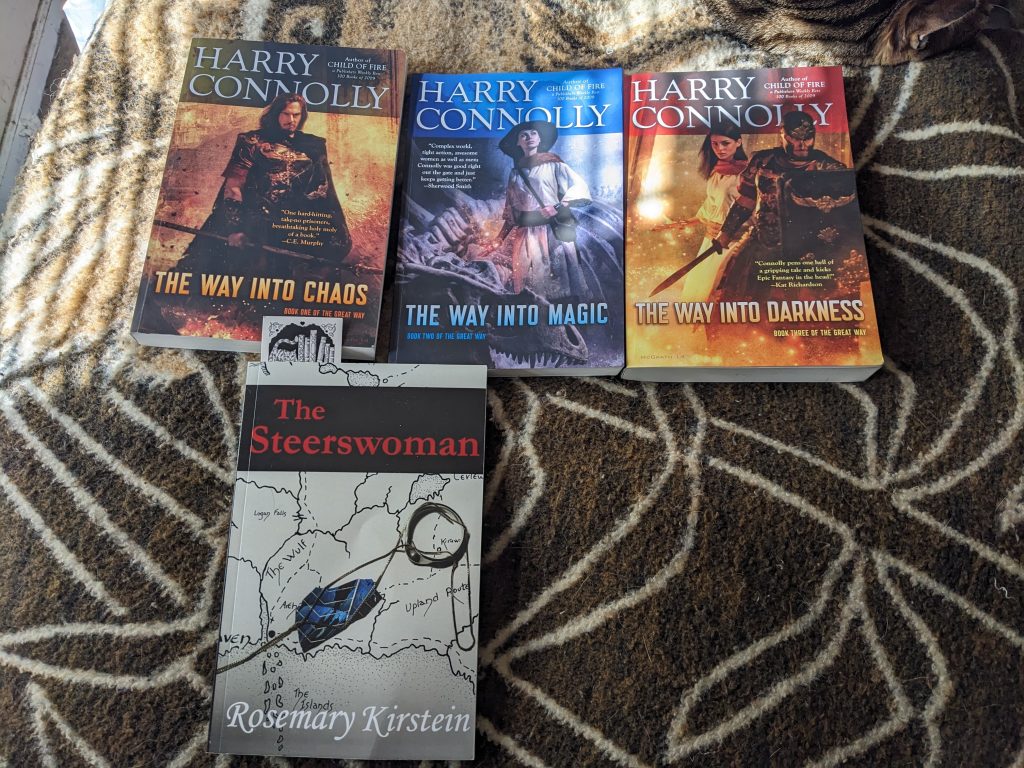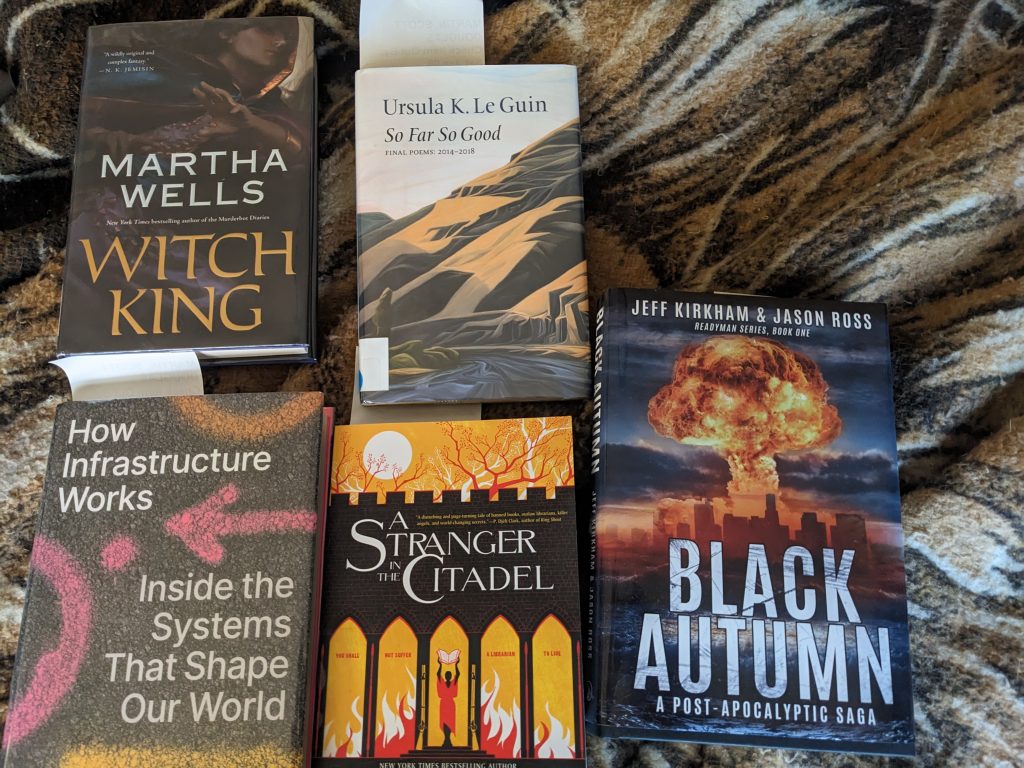[2/28] PCs: Bastra, Jenna, Lucas, Oren, Stone
The PCs began at the ruins of an old complex of three buildings, a few hours after sunset. An investigation and analysis identified the buildings as a likely inn, stable, and perhaps a small chapel. Oren began a ritual detect magic, while the others scattered to investigate the site.
Around 10 minutes later, Oren neared completion of the ritual, while Lucas and Stone were investigating the foundations of the small chapel building. Careful investigation revealed a hidden trapdoor and counterweight, leading to some kind of concealed basement below.
There was some testing and analysis from the rim; Jenna and Stone dropped into the pit, with the idea that Jenna would jam the mechanism open from the counterweight below. Before they could place the brace, they were swiftly attacked by hungry unliving shadows that flowed into the room! Stone’s armor and training evaded most of the deadly cold shadow touches, but Jenna was less successful in dodging the deadly claws.
Stone scooped up Jenna and leapt up through the trapdoor, clearing enough to catch the rim, with Jenna rolling to safety nearby. The counterweight began closing the trapdoor, though screeching and slowed by rust.
A pair of shadows slipped into the abruptly lit night above (thanks to dancing lights by Lucas), and a swiftly lit torch added both light and its own flickering shadows. After a brief fight, the shadows were slain. The heroes decided to lick their wounds and sleep, setting watches and building a bright fire.
At the end of the second watch, Bastra and Stone heard a disturbance in the bushes, waking Jenna (who was next with the dawn watch). Bastra’s keen eyes picked out the bodies of plant-like people; Jenna threw a lit branch into the nearby non-animate winter-dry scrub. It lit, and the two short bush creatures retreated from the sudden flame toward the road, then circled east into the forest. Jenna’s watch proved quiet, during which she crafted a quick ladder from a pair of ropes and sticks.
Everyone rose near dawn to contemplate the hidden chamber under the trapdoor. Dancing lights were sent ahead and weapons were unsheathed as they descended again. The shadows pounced, apparently unable to resist the warm lifeblood that intruded; the Shadows were swiftly destroyed, though they landed a few strength sapping hits before the hero attacks and magics shredded the remaining shadows. The next chamber, through the rotten door was revealed, but we ended before the scouting continued.
[Session End]
The Heroes:
Bastra, a drow sorcerer from another plane
Jenna, a tibaxi psychic rogue from the feywild
Lucas, a Mikpos wizard from Cosmopolitan Cratais
Oren, a druid from the local wilderness
Stone, a dragonborn paladin

